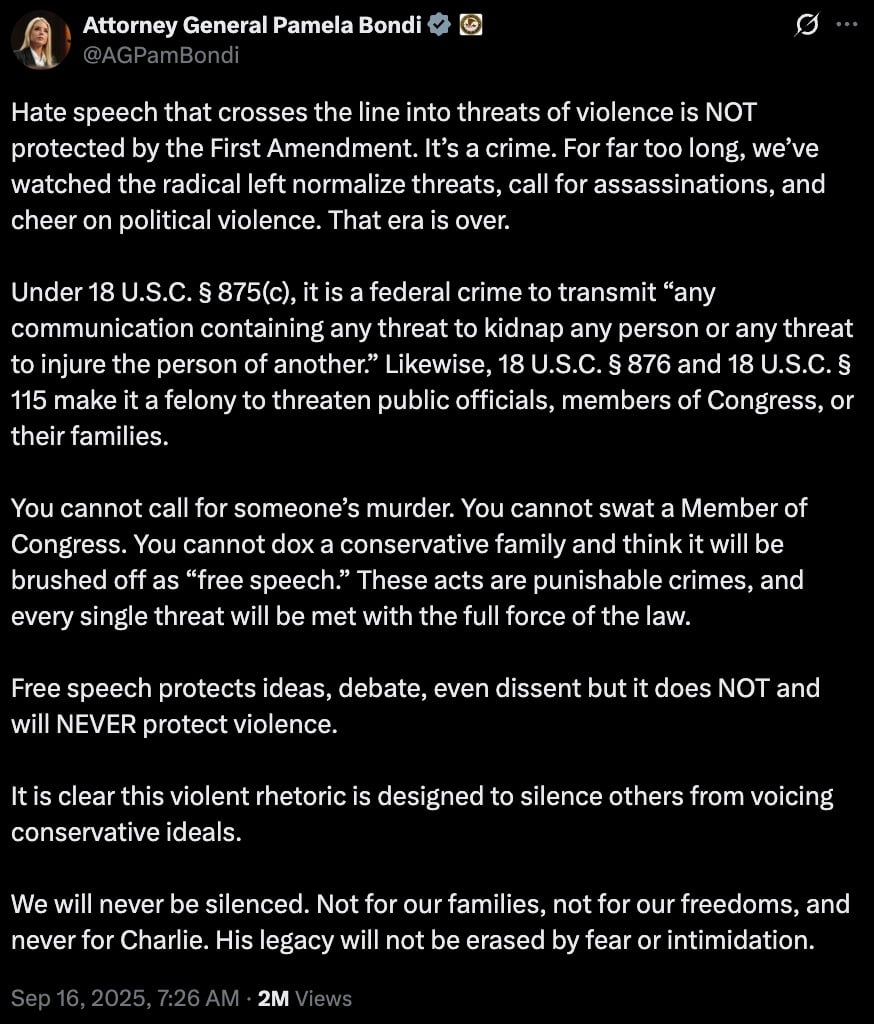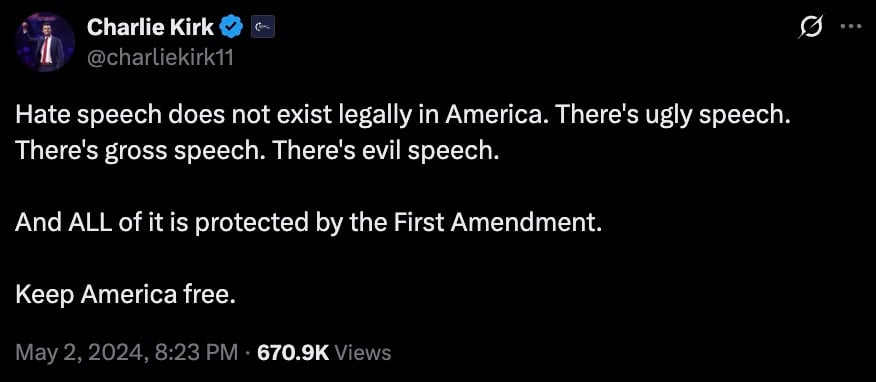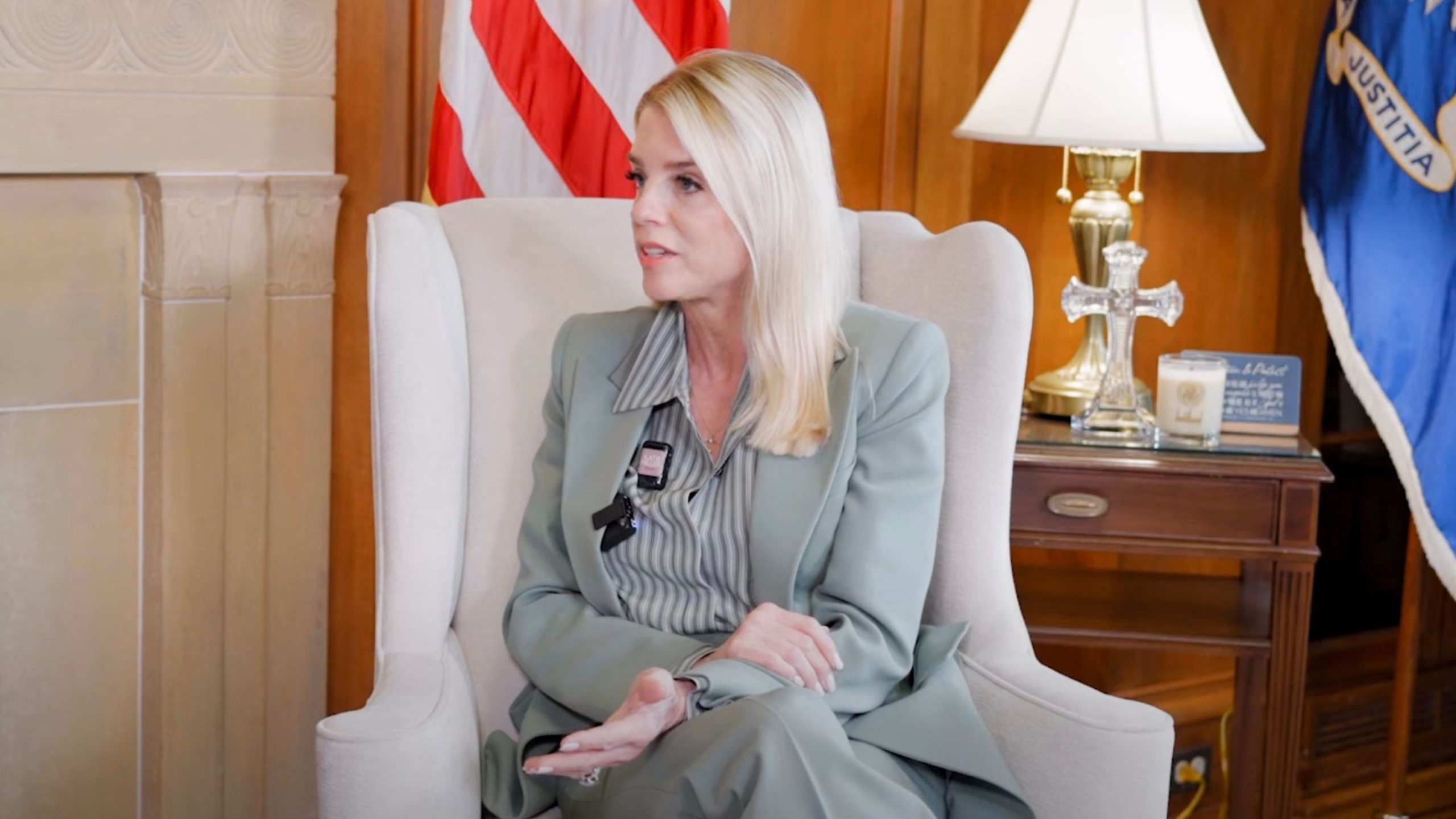US Attorney General Pam Bondi has stirred controversy with recent comments seeming to suggest that certain forms of speech could fall outside First Amendment protections, a stance that is fundamentally incompatible with the Constitution.
During an appearance on The Katie Miller Podcast following last week’s assassination of conservative activist and commentator Charlie Kirk, Bondi stated, “There’s free speech and then there’s hate speech, and there is no place, especially now, especially after what happened to Charlie, in our society…” She added, “We will absolutely target you, go after you, if you are targeting anyone with hate speech.”
Her remarks immediately drew sharp responses from across the political spectrum, with many warning that her approach opens the door to dangerous government overreach.
Bondi later attempted to narrow the scope of her original statements in a post on X, writing, “Hate speech that crosses the line into threats of violence is NOT protected by the First Amendment. It’s a crime.”
She continued, “For far too long, we’ve watched the radical left normalize threats, call for assassinations, and cheer on political violence. That era is over.”
The Foundation for Individual Rights (FIRE), a civil liberties group focused on free speech, fired back, stating, “There is no hate speech exception to the First Amendment.”
The Supreme Court has long protected even offensive or unpopular speech, with the Court’s view being that the “proudest boast” of America’s free speech legacy is “freedom for the thought that we hate.”
Conservatives who typically align with Bondi’s broader political positions also voiced concern.
Megyn Kelly, responding on X, wrote, “Hate speech is not prosecutable in America (which is good). Pam Bondi knows this.”
She suggested Bondi may have been referencing those plotting violence rather than those merely speaking in offensive terms. “Which would not be about the speech but the conspiracy,” Kelly added.
Britt Hume of Fox News was more direct. “Someone needs to explain to Ms. Bondi that so-called ‘hate speech,’ repulsive though it may be, is protected by the First Amendment. She should know this.”
Despite the wave of criticism, Bondi stuck to her position, reiterating her message in another post: “Free speech protects ideas, debate, even dissent but it does NOT and will NEVER protect violence. It is clear this violent rhetoric is designed to silence others from voicing conservative ideals.”
However, Bondi had stated that, “Hate speech that crosses the line into threats of violence is NOT protected by the First Amendment.”

What Bondi described, true threats of violence, is already illegal under federal and state law. Invoking the term “hate speech” in this context is misleading. The constitution does not recognize “hate speech.”
By framing criminal threats as “hate speech,” Bondi moves the public conversation away from clearly defined, prosecutable offenses and into territory where legal protections still apply.
The First Amendment does not carve out exceptions for offensive or disturbing language, and attempts to categorize speech as criminal based solely on its content or tone run into immediate constitutional limits.
The concern is that rebranding existing crimes with emotionally charged labels like “hate speech” creates confusion about what the law actually allows.
It suggests there is a separate, punishable category of expression based on viewpoint or perceived offensiveness, something the US legal system has thankfully repeatedly rejected.
For a state’s top law enforcement official to advance that view undermines public understanding of both free speech protections and the scope of legitimate criminal enforcement.

Charlie Kirk has been one of the most vocal opponents of these censorship regimes. In a 2024 post on X, he made his position plain: “Hate speech does not exist legally in America. There’s ugly speech. There’s gross speech. There’s evil speech. And ALL of it is protected by the First Amendment. Keep America free.”








